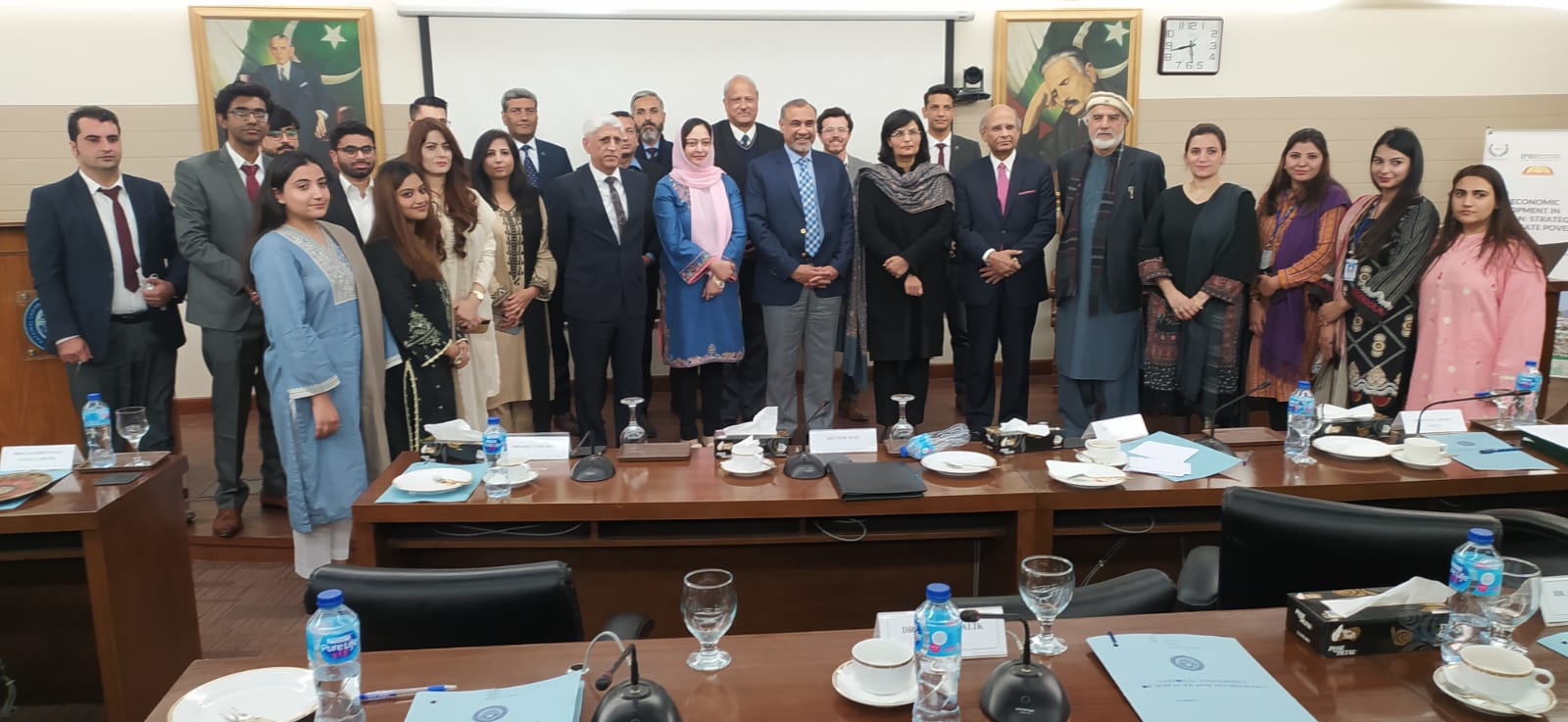Socioeconomic Development in Pakistan: Strategies to Alleviate Poverty
-Share this story:
Islamabad, December 7, 2022 – NUST Institute of Policy Studies (NIPS), Islamabad Policy Research Institute (IPRI), and the Center of Pakistan and International Relations (COPAIR) co-organized the seminar on “Socioeconomic Development in Pakistan: Strategies to Alleviate Poverty” on Wednesday, December 7. The trilateral seminar was held as part of IPRI’s Grand National Dialogue – 2022. Moderated by Director NIPS Mr. Amir Yaqub and attended by veteran statesmen, think tank experts, seasoned analysts, researchers, and students, the seminar consisted of keynote addresses by three eminent national thought leaders.
The first keynote speaker, Mr. Owais Ahmed Ghani, former Governor of Balochistan and Khyber Pakhtunkhwa, stated that development invariably presupposed good governance, which of necessity required urgent systemic reforms. The former governor stressed the desirability of the simplification and the rationalization of laws, procedures, and rules of business at all levels. He further added that complexity reduction or the “least-government-is-the best-government” approach in political and administrative structures would yield quick, positive results. He pointed out that the crux of any national reform effort had to be the elimination of redundancy as well as the maximal utilization of scarce resources.
Talking about the Chinese poverty alleviation model that had lifted more than 700 million people out of poverty since China’s reform and opening up, the second keynote speaker, Dr. Ashfaque Hasan Khan, Principal, NUST School of Social Sciences and Humanities (S3H) and Director General NIPS, highlighted the key pillars of the Chinese model, namely, a targeted, data-based pro-poor approach; a framework of sustained, multifaceted anti-poverty public-private partnerships, a composited package of localized and decentralized solutions, a tradition of firm leadership; and a flexible plan for sector-wise interventions.
Dr. Khan identified three major types of poverty in Pakistan, that is, the opportunity poverty, education and skills poverty, and poverty due to disability, marginalization, and discrimination. He stressed that poverty eradication in Pakistan demanded the identification of sectoral, regional, and rural-urban drivers of poverty, the formulation of a detailed anti-poverty blueprint, the establishment of a reliable system of transparent delivery, and an integrated action plan for agricultural modernization, industrial development, and pro-poor skills upgradation plus diversification targeted at the three major national poverty types.
The third keynote speaker, Senator Dr. Sania Nishtar, former Special Assistant to the Prime Minister on Poverty Alleviation and Social Protection, focused on multiple socioeconomic disparities in the country. Dr. Nishtar identified geographical, gender-based, sectoral, and institutional asymmetries in health, education, sanitation, employment, income, wealth, and digital access. She cautioned that women were at a serious disadvantage across the board.
Dr. Nishtar identified elite bias of the system, privilege entrenchment, erosion of the capacity to deliver, and conflict of interest as some of the key drivers of Pakistan’s unenviable socioeconomic indicators. She advocated that there was an urgent need for the incentivization of merit, integrity, ethical conduct, and efficient performance coupled with workaday, methodical accountability at all levels, including political, procedural, and administrative tiers. She also pointed out that there was a need for robust audit institutions, public financial management, procure reforms, and strong budget planning.
The interactive discussion following the keynotes highlighted the need for overcoming political polarization and unbalanced development, fostering inclusive growth by leveraging the massive national youth bulge, addressing administrative and political irregularities, and promoting broad-based, multi-sectoral cooperation.
In their closing remarks, Rector NUST and Patron NIPS Engineer Javed Mahmood Bukhari, President COPAIR Ms Amna Malik, and IPRI’s Director Research Brig. Rashid Wali Janjua (Retd) thanked the keynote speakers and the seminar participants for their constructive and concrete interventions for comprehensive national development.




